Growing up gay: From a hostile world to applause at Fife Pride
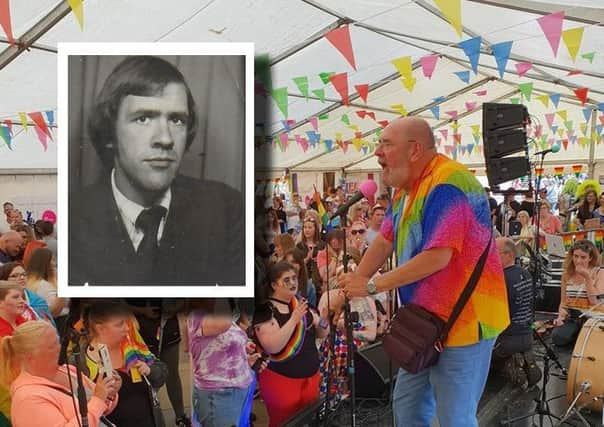

From persecution and living in fear, to standing onstage to roaring applause during the inaugural event two years ago, there will be many who share Dave’s story in the struggle for equality.
Ahead of this week’s big event in Kirkcaldy, Dave spoke to the Press about the changes in Fife through the decades, which have led to an event which now celebrates diversity in a town previously not always known for its open-mindedness.
Dave, now 68, said he knew early on that he was different.
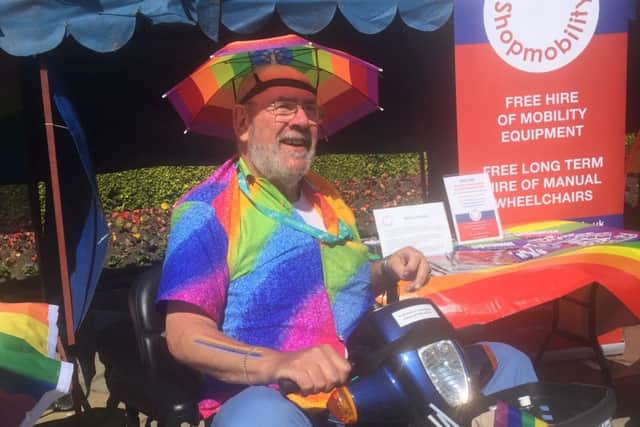

You may also be interested in:
Advertisement
Hide AdAdvertisement
Hide Ad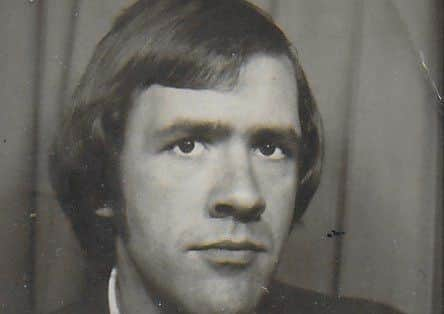

“I was born in England in 1951,” he said. “It might sound extreme but I knew from the age of four I was different, and as I got older it all fell into place.”
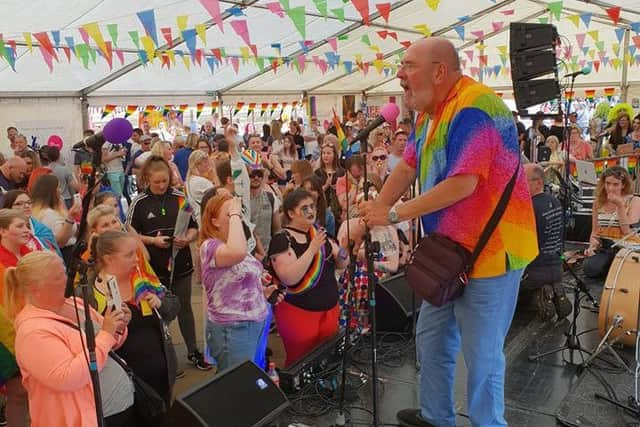

The way gay people were perceived at the time meant there were no positive role models.
Advertisement
Hide AdAdvertisement
Hide Ad“I was just coming into my teens in the 1960s, and I knew well enough who I was and what I liked, but everything that I heard about these strange people was criminal, nasty and suspicious,” he said.
“The only people who were recognised were what you might have called ‘jessies’ – you had to be a flamer.
“So you grew up without any positivity or role models because you wouldn’t have seen a gay teacher or librarian or street sweeper because everybody had to hide.”
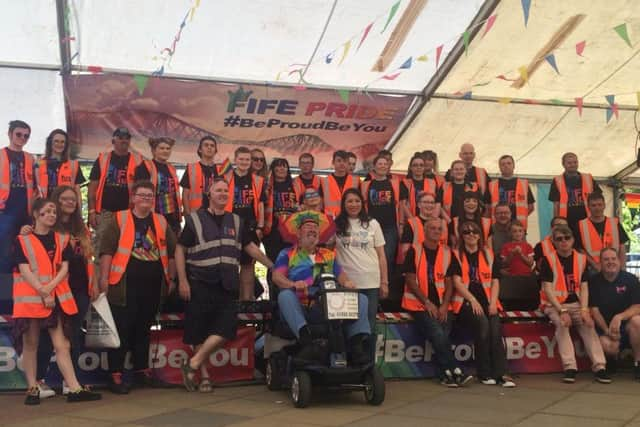

When Dave arrived in Scotland, things weren’t much better.
“Until decriminalisation you couldn’t depict homosexuality in film or on stage, so it led to these euphimisms like ‘he’s light on his feet’, ‘he’s very musical’, and ‘he’s close to his mother’.
“So you think ‘how ever did I learn about who I was?
Advertisement
Hide AdAdvertisement
Hide Ad“I moved to Scotland in 1972 not realising that we had another eight years to go before decriminalisation. I wasn’t aware of the legislation or the difference between countries, but I just knew it was a crime to express myself, or to have a relationship with a man.
“You’d read about things in the papers like the sheets being taken away to be forensically tested to look for two lots of DNA to demonstrate that people who were supposed to be flatmates were actually sleeping together.
“That was why they talked about staying in the closet, because it was a space that you daren’t move out of because you’d be unsafe in all sorts of ways.”
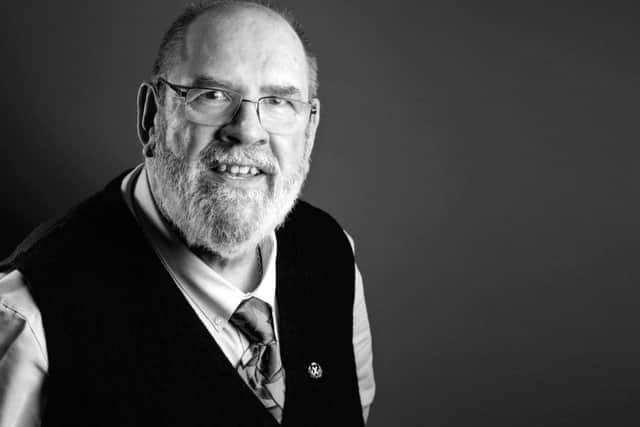

But it was only when Dave came to Fife in 1989 that things began to change for the better.
Advertisement
Hide AdAdvertisement
Hide Ad“I suppose it was somewhere to hide,” he said. I had to take my parents to live with me because they were disabled.
“I still didn’t have the chance to be me. It was only when my parents died that I sat down and thought ‘I’m 40 next year, who am I? I’ve got to do something about being me’.
“That was when I first came into contact with Fife Friend, which would have been 30 years old this month.
“It was established by a young man in Kirkcaldy.
“He set it up, put a phone in his front room with a different number as a helpline and then started discos and meetings in cafes just for people to meet up in safety. It was a massive leap.
Advertisement
Hide AdAdvertisement
Hide Ad“There wasn’t anything really in Fife. His idea was that you had someone to speak to on the phone. Then they’d maybe meet you for a coffee with a few other people and if you wanted to go to a disco they’d chum you along.
“This was still in the climate of the age of consent being different. It was 21 for men and it had to be in private.
“ So you and the boyfriend might visit and stay at the house of a hetrosexual couple – that wasn’t classed as in private. Literally, we could have been in the hands of the police if someone didn’t like it. You really had to know the ins and outs of the law, which hetrosexuals didn’t have to. All those sort of things made it very difficult.
“It was designed to be needlessly complicated. You had legislation that governments could trumpet and say they were being really liberal, but actually unless you knew all your ins and outs then the legislation is going to be meaningless.
Advertisement
Hide AdAdvertisement
Hide Ad“Under Margaret Thatcher more pieces of anti-gay lesislation came in than in the previous 100 years or so because her government was so down on homosexuality.
“Her famous speech saying that people are teaching children that they have an inalienable right to be gay – she was spitting this out at conference –I thought ‘my God, I wish somebody had just told me that I’d grow up okay’.”
Finding out who you are and just being yourself wasn’t easy, especially when you had to contend with the threat of arrest, prosecution, and persecution. Dave said even trying to just talk to people in a similar situation brought with it its own fear.
“Meeting people was another complicated thing,” Dave said. “You heard on the grapevine where gay people met, and usually it was around sex.
Advertisement
Hide AdAdvertisement
Hide Ad“Talking to people in Fife Friend, people wanted to see someone like them and talk to someone like them.
“But if there were police sitting somewhere secretly in a van they’d be rounded up with the rest of them and branded with things like gross indecency.”
Even the media was hostile to those who were still seen as outsiders to society.
“You were hidden behind all these fears and threats, and things that were said in the press,” he continued.
Advertisement
Hide AdAdvertisement
Hide Ad“But if the papers could get in that someone was lesbian or gay, that was the big headline: ‘Gay man caught speeding!’
“The Fife Free Press were quite good to us. In 1989 when the phone line started, they weren’t terrified of taking the advert. It simply said ‘lesbian and gay, want to talk? Call Fife Friend.”
“The Courier consistently refused to take it because it said it was a family paper and it didn’t endorse ‘that sort of thing’.”
Dave said that the police were also more than willing to pick on a easy target.
Advertisement
Hide AdAdvertisement
Hide Ad“You got a very quick arrest and crime solved rate if you could prosecute gay men – because of the fear of publicity they would usually plead guilty straight away hoping that it would be a non-story.
“You might have only gone to that toilet for a pee, but all of a sudden the police raid it, you’re a single man with no proof of sexual orientation but you’d be arrested and charged.
“So do you plead not guilty and it stretches into a trial with days and days of lurid reporting? Or do you just plead guilty and hope it’ll just go away? The police just made capital of these areas where they could prove illegality.
“Some people managed okay. They were streetwise, but, for others, it was a climate of complete fear – how do I work out who I am and where to go to meet people?”
Advertisement
Hide AdAdvertisement
Hide AdBut in Kirkcaldy there were establishments that were known to be places to meet, one of which is still in operation today.
“There were sort of half-known places, like the Penny Farthing on the High Street as it was the ‘theatre pub’ and at the time it was known as ‘The Bent Penny’.
“You had to be very circumspect, but you knew that if you went there, you might meet someone gay through obvious stares and you’d get to talk.
“There wasn’t really anything else until Fife Friend started its discos. After that there were one or two establishments that became gay-friendly.
Advertisement
Hide AdAdvertisement
Hide Ad“The discos started off at Anthony’s Hotel, which is now the site of Gowrie House old folks’ home on West Albert Road.
“Anthony’s was quite welcoming. The funny thing was, the first disco we had in the function room, they had little white table cloths on and little vases with flowers on them like it was a wedding reception!
“At that time, through the helpline, we got about 12 or 15 people volunteering to put it all together. By about 9.30pm we were the only 12 people there.
“I remember the owner of the hotel saying ‘is this it?’. By 11pm there were over 200 people there. It was a complete shock for them and us – but it demonstrated a need.
Advertisement
Hide AdAdvertisement
Hide Ad“It was quite quaint – people at the bar, people sitting around the edge, people dancing. There was nothing at all harmful about it.
“When Anthony’s closed we moved to the Beveridge Park Hotel, then the new owner there wasn’t happy, so we moved to the Dutch Mill, is on Forth Avenue.
“By this time it fizzled out as it became easier to go to Edinburgh where there were gay clubs, cafes, and pubs, but still nothing in Fife.”
With that history, Dave was absolutely floored by the arrival of Fife Pride in 2017.
Advertisement
Hide AdAdvertisement
Hide Ad“We always said, at the time of Fife Friend, that there would never be a gay pub in Kirkcaldy because the culture wouldn’t allow it.
“That’s what blew me away two years ago at the first Fife Pride in Kirkcaldy, because I never thought I’d see this in my lifetime.
“It was special in two ways, firstly to be visible in Kirkcaldy because it was almost such a presbyterian backwater, and because the first Pride was put together under the banner of ‘proud to be me’.
“There’d been an LGBT youth school group raising awareness of those who had been bullied for being different. They got people involved from all aspects of life, saying ‘if you’re proud to be us, come and walk with us’.
Advertisement
Hide AdAdvertisement
Hide Ad“By the next one, the stalls had groups not known for links to LGBT causes. It’s not like a ‘gay ghetto’ – the community’s happy to be part of it.
“Major things have come out of it, like some very strong LGBT youth groups in Fife, but also a Fife trans group.”
Many may think that the battle for equality was won long ago, but even relatively recently there were barriers put up for LGBT people.
Dave said: “Until only 15 years ago I had no employment protection.
Advertisement
Hide AdAdvertisement
Hide Ad“I could have been dismissed or denied a job just because I was gay – nothing to do with my quality of performance. People don’t grasp that.
“You’re a good employee, you’re doing good work, and your employer doesn’t approve of gay relationships so they decide to dismiss you.”
But for Dave, equality isn’t a battle won, we have to continue to protect what we have.
“Never take your freedom for granted, because with Vladimir Putin, Boris Johnson, and Donald Trump, our equality’s being rolled back,” he warned. “They’re dismantling the Human Rights Act. You can’t just sit back and say ‘what will be will be’. You’ve always got to at the forefront of defending your freedoms.”